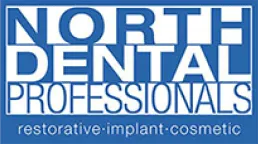Sleep apnea is more than just loud snoring or restless nights. It’s a serious medical condition that can significantly impact your overall health. While most people think of doctors or sleep specialists as the go-to professionals for diagnosis and treatment, dentists also play a critical role in managing certain types of sleep apnea. In fact, if you’re struggling with mild to moderate obstructive sleep apnea (OSA), your dentist might be one of the most important members of your healthcare team.

Understanding Sleep Apnea
Sleep apnea is a disorder where breathing repeatedly stops and starts during sleep. OSA occurs when the muscles in the throat relax too much, causing a blockage in the airway. This interruption in breathing can happen dozens or even hundreds of times each night, often without the sleeper being aware. Over time, untreated sleep disorders can lead to serious complications such as high blood pressure, heart disease, stroke, diabetes, and chronic fatigue. While continuous positive airway pressure (CPAP) machines are often prescribed for moderate to severe cases, many people find them uncomfortable or difficult to use consistently. This is where dentists trained in sleep medicine come in.
The Dentist’s Role in Sleep Apnea Treatment
Dentists are uniquely qualified to treat sleep apnea because they understand the structure of the mouth, jaw, and airway. For patients with mild to moderate OSA or those who cannot tolerate CPAP therapy, a dentist can provide an effective alternative: oral appliance therapy. Oral appliances are custom-made devices that fit like a mouthguard. They work by gently repositioning the jaw and tongue to keep the airway open during sleep. These devices are small, portable, and significantly more comfortable for many patients compared to a CPAP machine. Best of all, they’re silent. No noisy machines or air hoses required.
Diagnosis and Collaboration
It’s important to note that dentists do not diagnose sleep apnea. Diagnosis should come from a qualified sleep physician, often after a sleep study. However, once a diagnosis is made, a dentist with specialized training in dental sleep medicine can work closely with your physician to design a personalized treatment plan. This collaborative approach better ensures that the oral appliance is both effective and safe, and that your progress is monitored over time. Regular follow-ups are essential to make sure the device remains comfortable and continues to provide the relief you need.
Recognizing the Signs
Many people go undiagnosed because they don’t recognize the symptoms of sleep apnea or assume that loud snoring is just an annoyance rather than a health concern. If you or a loved one experiences persistent snoring, gasping for air during sleep, daytime fatigue, or morning headaches, it’s worth discussing these issues with both your doctor and your dentist. Some dentists now screen for sleep apnea as part of routine dental exams, especially if you report symptoms or if they notice signs such as tooth grinding or a narrow airway during an oral examination.
Improving Health and Quality of Life
Treating sleep apnea can dramatically improve your quality of life. Better sleep means more energy, improved focus, and a reduced risk of serious health problems. If you’ve been struggling with traditional CPAP therapy or are looking for a more manageable solution, consulting with a dentist trained in sleep apnea treatment might be the next best step. Not only can the right oral appliance help you sleep better, but it can also provide long-term protection for your overall health. By addressing the problem at the source, dental sleep medicine offers a practical, effective alternative for many patients.
Sleep Apnea in Chicago, IL
At North Dental Professionals, we understand the connection between your oral health and overall health. If you suffer from chronic jaw pain, fatigue, or a dry mouth, sleep apnea could be the culprit. Contact our office today to schedule a consultation and learn more about your treatment options.
